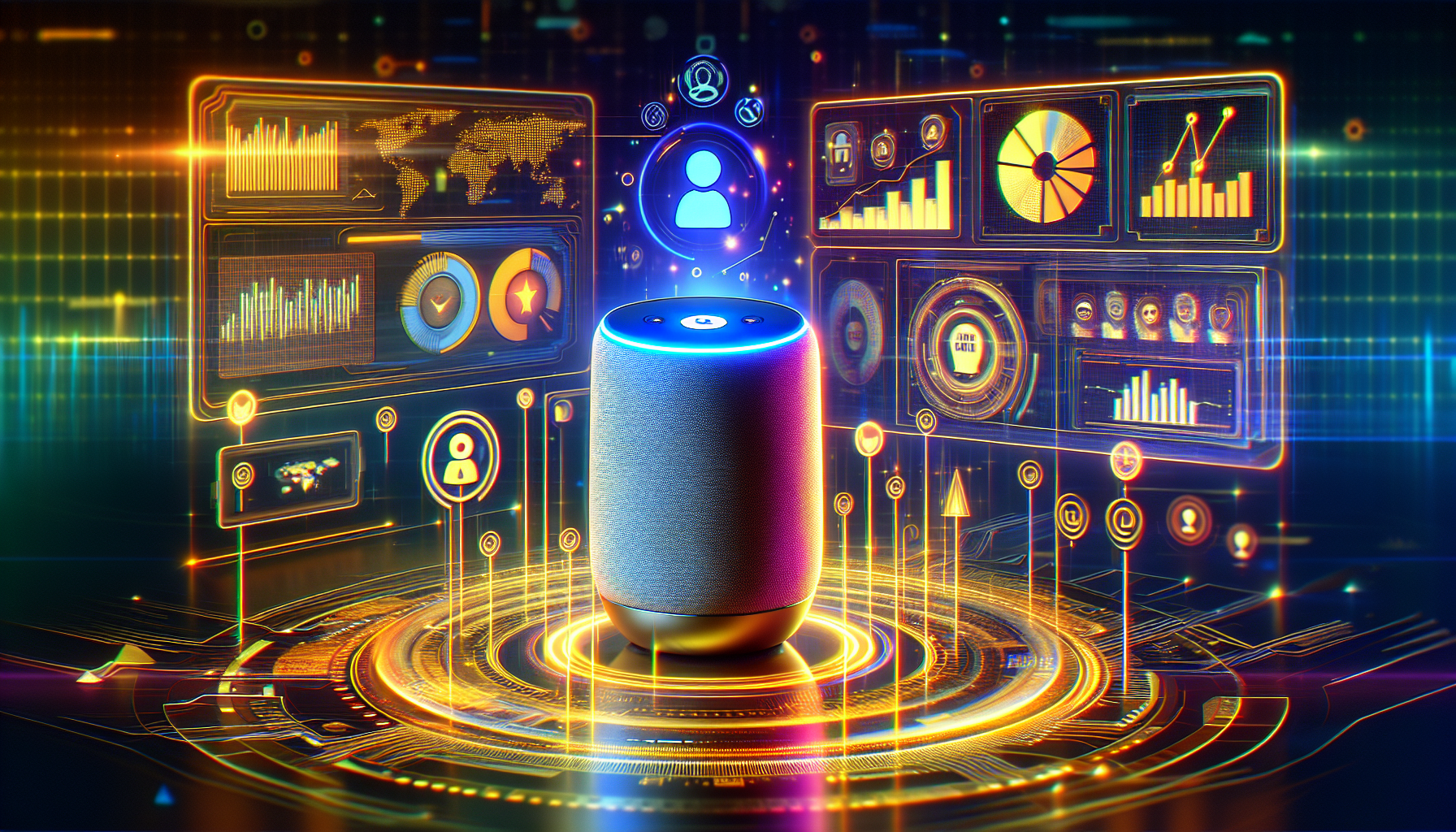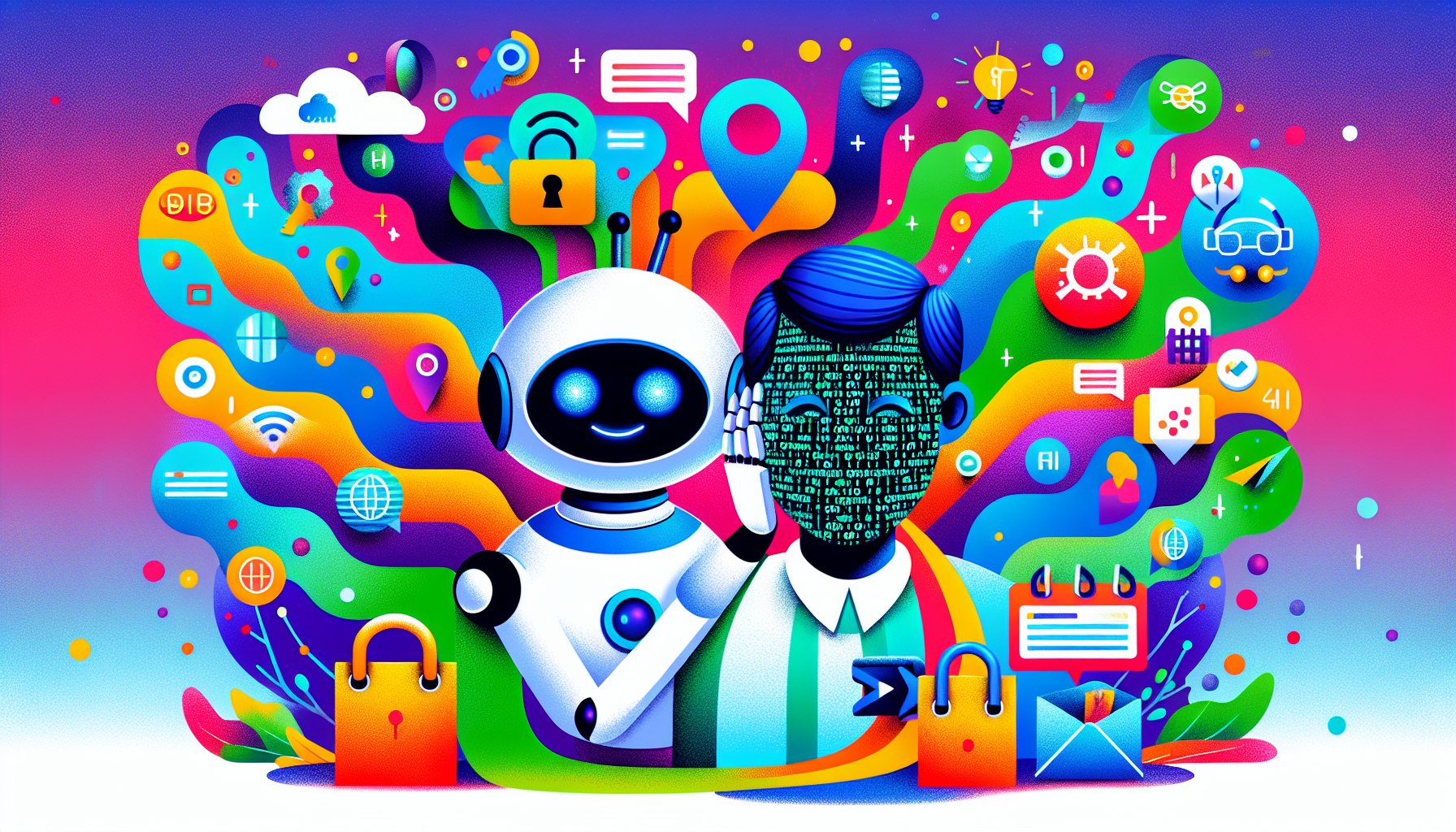Ever had that eerie feeling that your AI assistant is just a bit too attentive? Like when you casually mention “new shoes” and, bam! Ads for sneakers invade your social media feed like a relentless salesperson? Let me spill the tea: Siri might be eavesdropping more than you realize. Welcome to the weird and wonderful world of AI assistants—brilliant, helpful, and occasionally creepy. Today, we’re diving into the ethical maze of AI and personal data, unraveling the privacy concerns and sketchy scenarios that come with our digital companions.

The Digital Eavesdropper: What Does AI Really Hear?
Let’s start with what your dear AI assistant—be it Siri, Alexa, or Google Assistant—actually hears. These devices are programmed to recognize your voice and interpret commands through voice recognition technology. They’re like that overenthusiastic friend who is always ready to help, but sometimes a bit too eager.
- They listen for a wake word—“Hey Siri,” “Okay Google,” “Alexa”—and jump into action.
- But what happens when they mistakenly interpret chatter as commands? Imagine discussing surprise birthday plans and suddenly realizing everyone on the group chat knows about the party.
By design, these devices process snippets of conversation to improve their responses. It’s like hosting an uninvited guest at your dinner party; they’re quiet, but occasionally butt in with “helpful” suggestions. And while you may think it’s harmless, the concept of “always-on” listening raises eyebrows about the privacy and security of our conversations.
The Data Gold Rush: More Than Just a Listening Ear
Now, let’s talk treasure—data treasure. AI assistants gather a trove of data, not just from voice commands but also from your preferences, schedules, and even your location. This data is like gold in the digital age, coveted by tech companies for one simple reason: targeted advertising.
When you casually ask Siri for the “best pizza nearby,” little do you know that your request could morph into a goldmine of trends and habits that companies can monetize. Talk about turning your cravings into cash!
Remember when a certain tech giant mishandled private user data a few years ago? The fallout was enormous—lawsuits, trust issues, and a lot of cranky users demanding answers. It’s a stark reminder of how valuable and volatile this data can be. Here’s a little data treasure map of what they typically collect:
- Voice Commands: What you say, how you say it.
- Personal Preferences: Favorite songs, stores, and more.
- Location Data: Where you are and where you’ve been.

Navigating the Ethical Minefield: Who Owns Your Data?
The big question here is: who really owns your data? When you agree to those dense, fine-print terms and conditions, are you genuinely giving informed consent, or just trying to get to your device’s functionality as quickly as possible?
Take the case of John Doe vs. MegaCorp. John, just an average tech user, found his data being leveraged in ways he never consented to—sold to third parties, used in marketing strategies, and even influencing his online searches. This scenario is more common than we’d like to believe and highlights the murky waters of data ownership and user rights.
Informed Consent or Sneaky Tactics?
- Are You Reading the Fine Print? Probably not—most of us click “I agree” faster than we can say “data privacy.”
- Who Makes the Rules? Tech companies need to own up to their responsibilities regarding user data.
You’re probably thinking, “But I’m just a regular user!” Well, every bit of data counts. Remember, as John learned, there’s always a catch.
The Ripple Effect: What Happens When Data Goes Rogue?
Imagine your data, leaked or hacked, floating around the dark corners of the internet. Breaches aren’t just theoretical—they’ve happened. Remember the infamous data breach that affected millions, revealing sensitive personal information and causing widespread panic?
These dystopian tales underline the importance of ethical responsibilities. Companies hold a staggering amount of personal data, and how they protect—or fail to protect—this information has significant repercussions.
Scary Stats to Ponder
- Over 40% of U.S. adults have experienced a data breach.
- The average cost of a data breach? A jaw-dropping $4.24 million per incident!
But hold onto your hats! The ripple effects don’t just stop at lost data; they can impact your finances, identity, and emotional well-being.
Tips for Staying Safe in the Age of AI
So, how can you safeguard your data from unwanted spillovers? It’s simpler than you might think:
- Adjust Privacy Settings: Dive into the settings of your AI devices and tighten up those privacy permissions. You’d be surprised at what you’re sharing.
- Be Mindful of Information: Think twice before sharing too much with your AI. Do you really need to tell Siri your weight?
- Use Monitoring Tools: Apps and services can track your data usage and alert you to breaches. Staying informed is your best defense.
Here’s a quick trivia—did you know that over 70% of AI users aren’t fully aware of their privacy settings? Time to be in the savvy 30%!
Conclusion
To wrap up, our AI companions are convenient, yes, but they also come with a catch. They listen, they learn, and they gather your data like it’s their full-time job. Staying informed and proactive about your digital footprint isn’t just a smart move—it’s essential.
And next time Siri chimes in unexpectedly, remember: everyone loves a gossip—especially your AI assistant.












